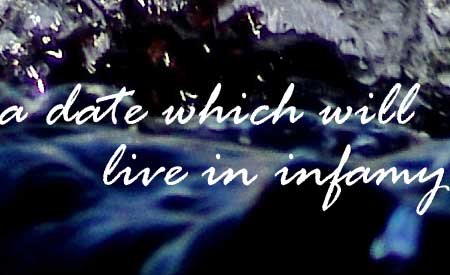
In the last ten years, Charles Simic, Mark Strand, James Tate, Stephen Dunn, Franz Wright and Naomi Shihab Nye have published books of prose poetry. Before them, Rilke, Baudelaire, Poe, Whitman, Octavio Paz, Henri Michaux, Gertrude Stein and Sherwood Anderson established the form, forcing for the first time the question of genre. T.S. Eliot tried to put a stop to this mish-mash a hundred years ago, citing that so-called “prose poems” followed no discernible “musical pattern,” and therefore were not worthy of the name poetry (or even half the name). We know, if only by the committee of recent Pulitzer Prize-winning poets listed above who continue to produce prose poetry, that Eliot did not stop it, that prose poetry is not only alive and well, but that it is consistently garnering the highest honors the contemporary “academy” has to offer.
So was Eliot wrong? Does prose poetry have the capacity to use a “musical pattern” after all? Or have we given up on that and let music be music and poetry be poetry? A rose is a rose is a rose, after all.
Prose poetry is perhaps the least of our worries. (Where “our” refers to those who wish to apply a critical lens to poetry—to distinguish between what is good and bad. And “worries” refers to the problem of there being no universally accepted criterion for what makes poetry good, anymore.) David Ignatow outlines a variety of new poetic concerns in his essay “The Necessity of the Personal” before coming to these fundamental questions: “What criterion are we using in praising the poets today and encouraging them in their efforts? Are we in a dilemma?” (Lammon 99).
Obviously poetry, along with every other art form in the 21st century, has proliferated aesthetics so deeply that it might already be too late to speak broadly about “poetry.” Maybe we should be referring to “New Yorker Poetry” and “Black Warrior Poetry” and “Missouri Review Poetry” and “Poetry Magazine Poetry” as unrelated fields. There’s concrete poetry and dada-“found”-poetry and all kinds of stuff, as Ignatow tackles sufficiently.
But I don’t want to go there. I want to return to Eliot’s hundred-year-old concern about prose poetry, and its problem of “musical pattern.” Because I think that the slow seep of prose into poetry covers the most ground.
Clearly it’s unwise to claim that free verse is, as a rule, absent of rhythm, not relying on formal poetic machinery like iambic pentameter and the like. This is what Pound meant when he said rhythm can be found in lots of places besides a metronome: the natural presence of rhythm in language. Even a child can sense that “It is a date which will live in infamy” is somehow more pleasing to hear than “Today something so terrible happened that we’ll never forget it.” The Roosevelt line is roughly anapestic tetrameter, ending on a couple feet of pentameter—and its musicality is brazen, compared to the latter (with its streak of six consecutive unstressed syllables).
So was Roosevelt reciting poetry?
This has become a central question in poetry today. If the “infamy” line was the only portion of Roosevelt’s speech in anapestic tetrameter, does that mean it isn’t poetry, because of its context? Or is that one line poetry and the rest of the speech prose?
Unfortunately this line of questioning leads me to agree with Owen Barfield’s comment that such genre considerations “Induce us to ask the wrong kind of questions, and forget what we are inquiring, in the ardor of inquiry” (Hartman 50). What is it we really want to know about a piece of art: Whether it’s poetry or prose? Whether it’s formal or free?
Before I answer that, I’d like to explore what we mean by rhythm. Eliot distinguishes between “verse rhythm” and “prose rhythm,” praising the first and dismissing the second (Hartman 49). He adds that verse rhythm uses “repeated rhythms,” but says nothing else about prose rhythm. So both forms use rhythm, but Eliot implies they’re different rhythms. Surely the only difference isn’t repetition, as off the top of my head I can think of a great many novels that rely on repetition as easily as I can think of a great many poems that do not. Mary Hall Leonard points out a widespread lack of clarity on the point of rhythm in prose when she states, “That the cadence which belongs to polished prose may have varying degrees is obvious. But as to its division into kinds of cadence, no writer, not even Amy Lowell herself, has ever pointed out any basis on which kinds of cadence can be distinguished” (Hartman 47).
The problem I’m noticing is the presumption that rhythm, cadence, and musicality are exclusive properties of poetry. Eliot and Lowell admit that rhythms exist in prose, but that they’re somehow different rhythms; and then they change the subject. The statement I’d like to issue is that rhythm is a feature of language generally, whether poetry or prose, and it can contribute to the “meaning” of a work, no matter how you classify that work. In other words, I reject definitions of poetry which rely on such terms as musicality and rhythm. Perhaps discernible rhythm and musicality are, on the whole, used more heavily in poetry than in prose, but I maintain it is a question of extent and not type of rhythm.
I’m going to put forth this definition as an alternative: poetry is language that draws attention to itself. Whether it’s by lineation (Hartman 52) or clear rhythm or repetition or fresh metaphors or any number of other attention-grabbing feats—poetic-language differs from prose-language in that it draws attention to itself. Prose language, or “prose rhythm” invites the reader to ignore it, in hopes of promoting its story or “offering” in its nakedness. It seeks invisibility, a task which requires its very own large set of fine tools.
Whether language is seeking visibility (poetic) or invisibility (prosaic) is an evocative question to consider while looking at a work. Especially when we have a lineated work which uses predominantly prosaic language, or vice versa. This is a conceit which has only existed since the dawn of free verse. And if it’s true that new ideas require new forms, then we should pay close attention to this recent overlap of genres if we expect to get a handle on what “the poets in Ghana are doing these days” (O’Hara), where Ghana is, for the sake of this sentence, the year 2014.
As an example, here’s a stanza of Stephen Dunn’s The Statue of Responsibility:
Imagine it’s given to us as a gift
from a country wishing to overcome its own hypocrisy.
I can see someone standing up at a meeting
and saying, Give it to the Americans, they like
big things for their people, they like to live
in the glamour between exaltation and anxiety.
Instead of an arm raised with a torch, let’s insist
they cement its feet deep into the earth, burden it
with gigantic shoes—an emblem of the inescapable.
Very little in the language of this poem draws attention to itself. Even if all the word choices aren’t entirely blue-collar, the conversational tone is clear. It doesn’t sound like Dunn labored over scanning out his rhythm, yet there’s a hidden, invisible grace to the “musicality” of his lines.
A friend of mine once summarized his disdain for poetry by that fact that “you couldn’t ever get away with talking to someone that way.” And I think he’s right. Poetic language is excessive. It’s to be used for effect, and when poets take for granted that poetic language is the norm in poetry, the result is sloppy art. Because you can’t use something for effect if you don’t know what your effect is supposed to be. It’d be like if you grew up thinking that all parties were Halloween parties where people dressed up and then one night you went to a normal party and you were the only one dressed up and you had to try to explain why you were dressed that way.
The form must inform the content.
Perhaps poetry is “the glamour between exaltation and anxiety,” to repurpose Dunn.
So why is Dunn’s poem not written in prose? I’d venture it’d work fine that way. By employing lineation, he has chosen to draw attention to certain words. In prose, the first sentence reads “Imagine it’s given to us as a gift from a country wishing to overcome its own hypocrisy.” Whatever country this is and its hypocrisy is the focus. Then we think of the gift itself, The Statue of Responsibility. Only after a few readings does the direct object “us” come to bear. Dunn’s first line, “Imagine it’s given to us as a gift” draws attention to the final word. We consider a gift not only as a thing given, but as a thing received. We receive it. And we notice that the speaker is a representative of some group the readers are a part of. The speaker is speaking for us.
Later, the line breaks on “they like to live.” Oh yes, we like to live, we like to live any which way we want. Then the next line the thought continues, qualifying how we like to live: “in the glamour between exaltation and anxiety.” Without the line break we get how we like to live, but with the line break we also get that we like to live, in general. This is different—it’s more.
Hartman reminds us that Pound used to “revise a poem without changing a single word” (59). As lineation offers the poet control over the way a poem is to be read, the choice to print a poem in prose is also an exercise of control. Or it is relinquishing control. In any case it’s a choice the poet has made to direct “the reader’s temporal experience of the poem, especially his attention to that experience” (13). And this is Hartman’s definition of prosody. To insist that a poet who has chosen to write his poems in prose—that he is, in fact not writing poetry due solely to the lack of lineation… well this is naive. It is as blunt and thoughtless a critique as it would be to deny that the choice not to act (in a given situation) is also a form of action. In other words, the choice to not use lineation is a valid method of “controlling the reader’s temporal experience of the poem.”
If a person wants to scribble a grocery list and offer her state-issued identification card as poetry, that’s fine with me. The designation of poetry is entirely devoid of value. By calling something poetry or prose, all you’re doing is giving the reader clues about how to go about reading it. I repeat, “We ask the wrong kind of questions, and forget what we are inquiring, in the ardor of inquiry” (Hartman 50).
So what’s the right question? How do we go about critiquing poetry without the handy guidelines of meter, musicality, morality, or even “line”? We are standing at the gates of a new prosody. The tools that have been useful in the past are not necessarily useful anymore. What has gotten us here will get us no further. “The man, who has equipped himself with many things for his journey, spends everything, no matter how valuable, to win over the gatekeeper. The latter takes it all but, as he does so, says, ‘I am taking this only so that you do not think you have failed to do anything’” (Kafka, Before the Law).
Many of the questions frequently asked in prosody strike me as frightfully secondary. That is, secondary to “the overwhelming question” (nod to Eliot), which is Does this move me? As if technical arguments were ever a replacement for effect. I’ve heard a theory that, by nature, no argument can be convincing, that none can ever reach to the realm of feelings. And I’m totally convinced.
“Previously I did not understand why I got no answer to my question; today I do not understand how I could believe I was capable of asking. But I didn’t really believe, I only asked” (Kafka, Notebooks).
Works Cited
Hartman, Charles O. Free Verse: An Essay on Prosody. Princeton: Princeton University Press, 1980. Print.
Ignatow, David. “The Necessity of the Personal.” Written in Water, Written in Stone. Ed. Martin Lammon. Ann Arbor: University of Michigan Press, 1996. 89-101. Print.
Kafka, Franz. “Before the Law.” The Complete Stories. Ed. Nahum N. Glatzer. New York: Schocken Books, 1971. 3. Print.
—. Dearest Father: Stories and Other Writings. Ed. Max Brod. New York: Schocken Books, 1954. Print.





gara says
This was a most interesting piece on poetry vs. prose, if you want to consider it in that manner. For me, it fits with my way of thinking about the two. I wish I’d had this information, discussion, ideas to ruminate over when I was in college. I had a hard time, then, understanding the intricacies of prose… which is now my preferred form of writing “poetics.” Perhaps I am wording things incorrectly, as my degree is art and not writing / poetry… but my heart is also in poetry and prose equally as in art. I love to express through words – I love words – and I always have and will.
Thank you for this wonderful article!! It’s a keeper!